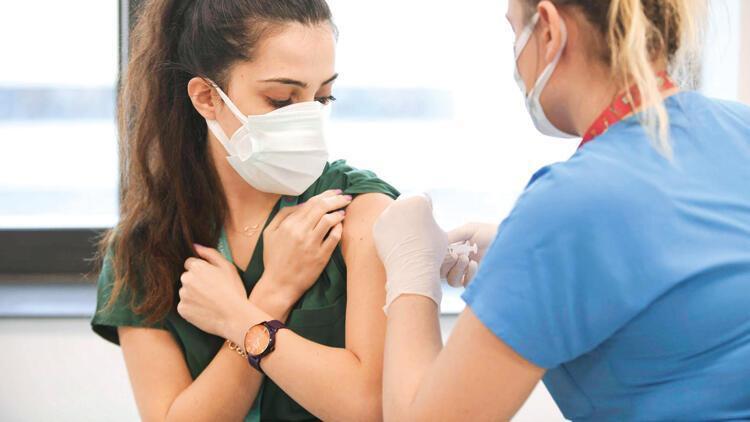
Turkey’s Health Minister Fahrettin Koca has reiterated that the Omicron-triggered rise in the virus case is not likely to cause problems that were experienced in the early chapters of the pandemic but warned that people still need to take necessary precautions.
The number of daily infections, which have been hovering above 70,000 since early January, exceeded the 90,000-mark last week for the first time in the country.
“A significant portion of the public is vaccinated, and the illness is not as severe as before. Precautions are still a must. It is time for us to take the pandemic off our agenda by getting the shot and taking personal precautions,” Koca tweeted, urging people to particularly get the locally developed vaccine, Turkovac.
Meanwhile, the minister yesterday unveiled the weekly incidence rate data, measuring the number of coronavirus infections per 100,000 people.
According to the latest data, the incidence rate in Istanbul eased to around 1,246 in the week of Jan. 15-Jan. 21 from more than 1,571 between Jan. 8 and Jan. 14. Some experts argued that the blizzard which recently hit Istanbul might lead to a temporary decline in infections in the country’s most populous city as the snowstorm forced residents to stay at home.
However, the data Koca shared on Twitter showed that the incidence rate in Ankara climbed from 630 to 726, while İzmir, the third-largest city, saw the rate increase rather slightly from 714 to 730.
The country’s three largest cities were not among the 10 provinces that registered the most increases in the incidence rates.
More than 84 percent of the population aged 18 and above have been double jabbed, while close to 93 percent of the adults, or over 57 million people, have received at least one dose of the COVID-19 vaccine since the country rolled outs its inoculation drive in January last year.
Additionally, some 25 million people have been given a third dose of the vaccine.
Turkey added Turkovac to its arsenal of vaccines at the end of December 2021 after local authorities granted their approval and began using it beside the jabs of Pfizer/BioNTech and the Chinese company Sinovac.
Meanwhile, researchers at the Ankara University Cancer Research Institute have made progress in the development of an adenovirus-based vaccine against COVID-19.
Studies on this jab were launched in March 2020 and tests on animals have already been completed.
Phase one trials of the vaccine started last week at the Ankara City Hospital. This is a nasal and oral vaccine.
“Similar jabs have been developed at Oxford University and by a U.S. company. Turkey is not currently using this type of vaccine. The vaccine we are developing has the potential to trigger a strong immune response,” said Professor Hakan Akbulut, the head of the research institute.
Its unique design makes the vaccine provide a longer and stronger protection against the virus, he added.
“We say this based on tests conducted in our laboratories. We will be able to reach a conclusion after human trials”, Akbulut said.